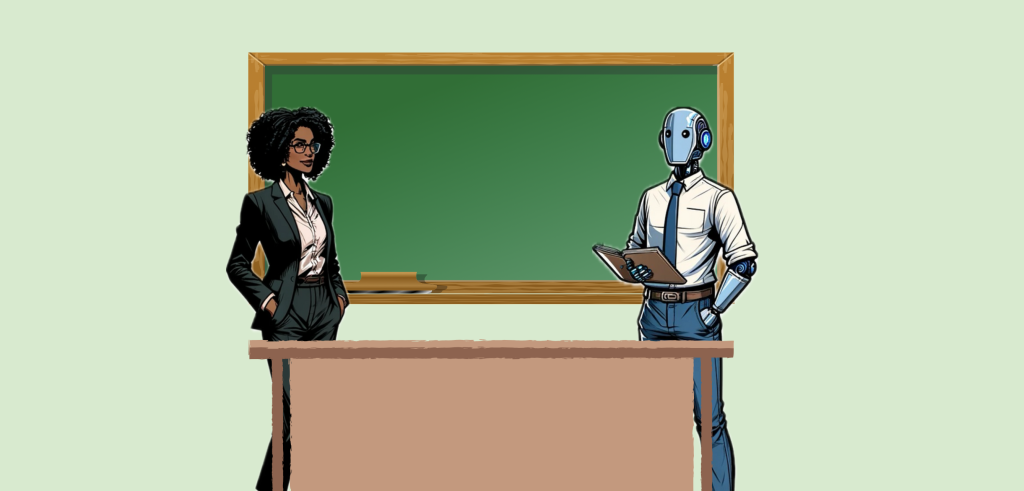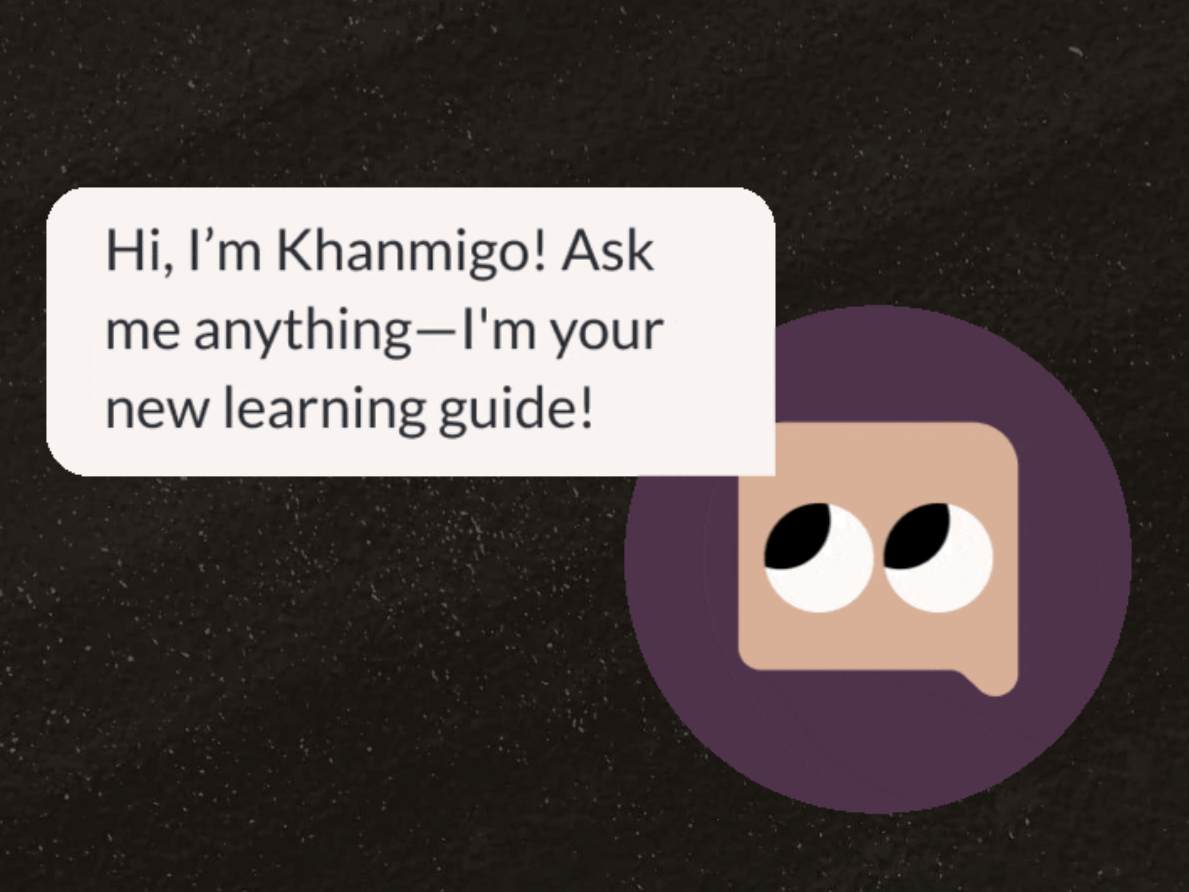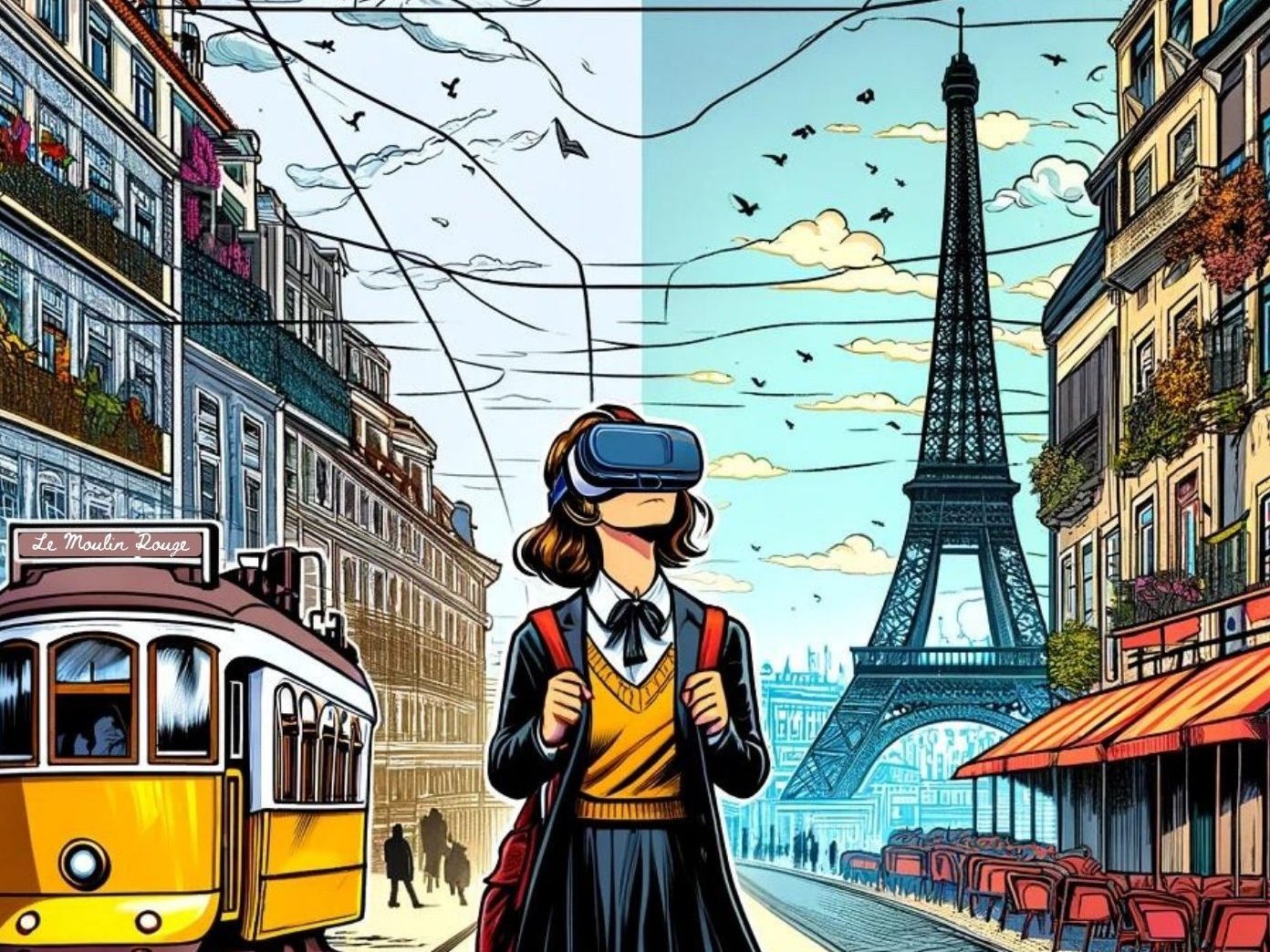
Imagine a classroom where every lesson is tailored just for you, where support is available 24/7, and where learning feels more like discovery than drudgery. This isn’t a scene from a sci-fi movie. It is here and now, thanks to the use of Artificial Intelligence in education. Already, AI is making waves in schools and universities around the globe, taking over the boring work of grading and attendance, and leaving teachers free to do what they do best – teach.
But that’s just the tip of the iceberg. AI isn’t just about making learning easier. It is about making learning deeper, more meaningful, and heck, a lot more fun. From smart tutoring systems that know just when you need a nudge in the right direction, to courses that adapt on the fly to how you learn best, AI is turning the traditional educational system on its head.
And it’s about time something drastically changes. For decades schools have been suffering from having too few teaching staff. Some sources argue that the shortage of primary school teachers in the Netherlands has reached almost 10,000 and up to two-thirds of jobs in secondary school are hard to fill. Estimations are that this trend will only worsen in the upcoming years. A change is needed! This article will take you on a tour of what’s here, what’s coming, and why it might just be the coolest thing to hit education since the invention of the whiteboard!
Study Pals
At the forefront of this revolution we find the AI-powered “study pals” that are changing the face of education as we know it. Imagine having a buddy who’s always there to help you out with your studies. That’s exactly what these AI assistants are like. These digital companions are like having a personal tutor always available. Struggling with a complex math problem? Your AI buddy can walk you through it step by step, adjusting its explanations based on how well you’re grasping the concept. Reading a book for English class? Your AI Pal can help you analyze themes, characters, and even help you prep for that big essay. And it’s not just about getting the right answers. These AI pals are designed to understand your learning style. Do you learn better with visuals? They can provide helpful diagrams and videos. Need to hear things a couple of times? They’ll repeat information without any judgement. It’s all about providing a learning experience that’s tailored just for you. Additionally, these AI pals can help keep track of your schedule and remind you about upcoming deadlines. They can even give you a nudge when it’s time to take a break. It’s like having a coach who’s dedicated to not just your academic success, but your overall well-being.

Multiple companies are working on AI tools like this. One working example worth checking out is Khanmigo. It’s a creative writing coach based on generative AI by Khan Academy in collaboration with OpenAI. It’s clear that the potential of these AI study pals is enormous. They’re not just reshaping how we learn. They’re revolutionizing it, making education a more personalized, engaging, and interactive experience.
Curriculum Development, Automated Grading & Feedback
The next two game-changing applications are Curriculum Development and Automated Grading & Feedback. AI is taking curriculum design to new heights, employing advanced algorithms to analyze huge amounts of educational data. This allows for the creation of curriculums that are tailored to address the diverse needs of students. Imagine lessons that evolve and adapt, ensuring that each topic resonates with students’ interests and learning styles. Simultaneously, AI’s role in automated grading and feedback is revolutionizing the assessment process. No more one-size-fits-all feedback. Now, AI systems can provide individualized comments on students work and pinpoint specific areas for improvement. This will not only safe time on grading. It will give students precise, constructive feedback that they can use to grow. Teachers, freed from the endless cycle of grading, can devote more time to inspiring and mentoring their students.
Together, these AI-driven approaches are transforming the entire learning journey. They ensure that education is not just a transfer of information, but a nurturing process that recognizes and fosters each student’s potential. This shift towards a more dynamic, responsive educational system marks a significant leap forward in how we approach teaching and learning.
VR & AR

Imagine a classroom where the traditional boundaries of learning dissolve. You put on a VR headset, and suddenly you find yourself walking through the vibrant streets of Lisbon or strolling along the romantic boulevards of Paris. This immersive experience is a new approach to language learning. You’re surrounded by the sounds of Portuguese or French, spoken in their authentic contexts, engaging with virtual locals in real-time conversations. The sights and sounds of these cities aren’t just backdrops, they’re interactive elements that bring language learning to life, allowing you to experience and practice new languages in the most natural and engaging way possible. Simultaneously, augmented reality brings a different dimension to this experience. Your desk transforms into a Spanish marketplace, where you interact with virtual items, learning their names and uses in Spanish. This blend of VR and AR transforms learning from a passive activity into a dynamic, sensory experience. Abstract concepts in language or even in other subjects like chemistry, where you can interact with molecular structures, become tangible and engaging.
In this vibrant educational realm, AI is the guiding force. It’s not just about navigating these virtual worlds. AI-driven language tools are providing real-time feedback on your pronunciation, grammar, and even adapting to your personal learning pace. These tools are like having a personal language coach who’s attuned to your every need, making the learning process not just effective but incredibly personalized. And maybe the best thing about it – absolutely no need to feel embarrassed when making mistakes. With this technology, learning a new language is no longer only about memorizing vocabulary and grammar rules. It is about immersing yourself in the language’s culture, traditions, and nuances. These technologies open up new worlds of exploration, making education an adventure that is richly interactive and deeply engaging. This is the future of learning, where every lesson is an exciting journey.
Role of Teachers
Not only the way of learning but also the role of teachers is transforming in exciting ways. They’re becoming facilitators of learning, using AI-generated insights to tailor their teaching and make lessons more interactive and student-centered. At the same time, they have to evolve into data analysts, interpreting AI feedback to fine-tune their educational strategies. This tech-forward landscape also turns teachers into lifelong learners, constantly updating their skills to integrate the latest digital tools into their classrooms. Beyond the tech, they remain irreplaceable as mentors, offering the emotional support and guidance that AI can’t yet or shouldn’t replicate (but that’s a completely different debate). Teachers are also pivotal in implementing AI effectively, ensuring it’s used ethically and responsibly. In this new era, teachers are not just educators. They’re innovators, guides, and the human heart in the digitized world of learning.
Challenges & Preparation
Navigating the AI revolution in education is an exciting journey, but it’s not an easy one. Protecting data privacy and security is paramount, as handling student data with care is as important as the educational outcomes it aims to improve. Tackling AI’s inherent biases is another critical path, ensuring that this digital evolution doesn’t widen the gaps in educational inequality. However, there’s more to the story. It’s essential to keep the human touch in education alive. Balancing AI’s efficiency with the empathy and connection that only human teachers can provide and ensuring continuous social interactions between the students is a crucial act. And as we head into this future, we must be mindful of those who might be left behind due to the digital divide, ensuring that every single student has a seat at this high-tech table. This might pose as one as the biggest challenges we face, especially as access to technologies like VR poses a big investment for the educational institutes.
How can educational institutions prepare for this? It’s about building bridges – between technology and traditional teaching methods, between data privacy and innovative learning tools, and between AI-driven education and ethical, responsible use. Training educators to become fluent in AI and tech-savvy while keeping their mentoring spirit alive will be crucial. This journey is not just about adopting new tools. It’s about adapting ourselves to a new educational ethos where technology and human insight coexist in harmony, paving the way for an inclusive, empowering, and dynamic future of learning.


